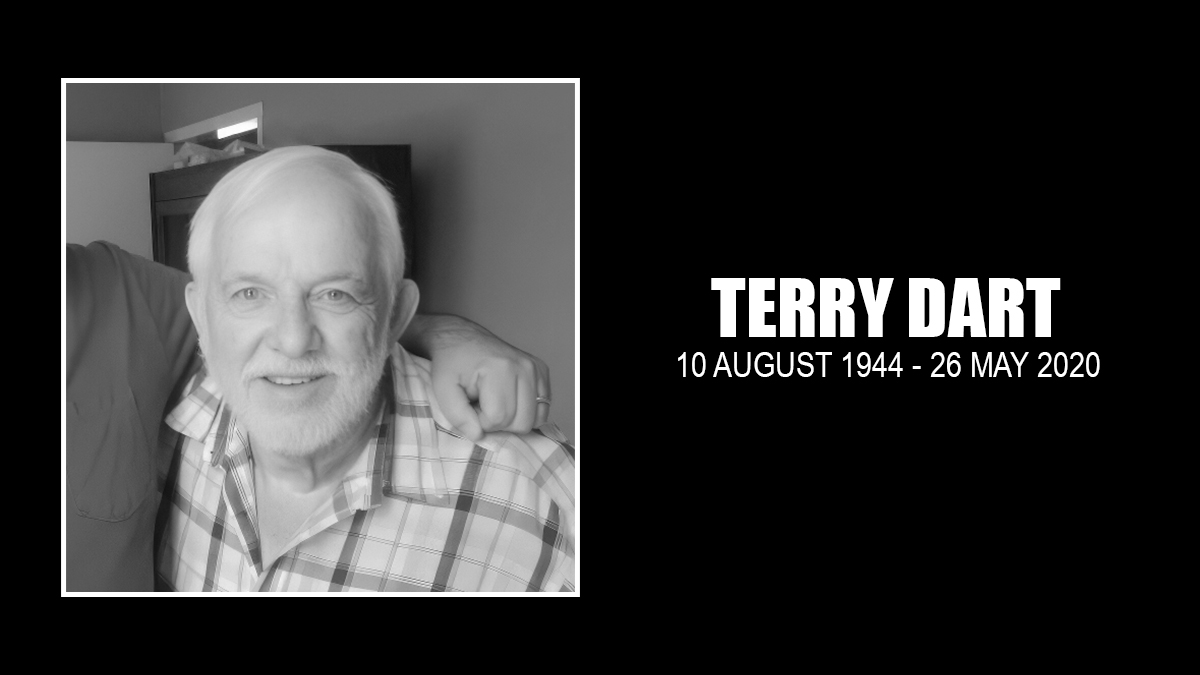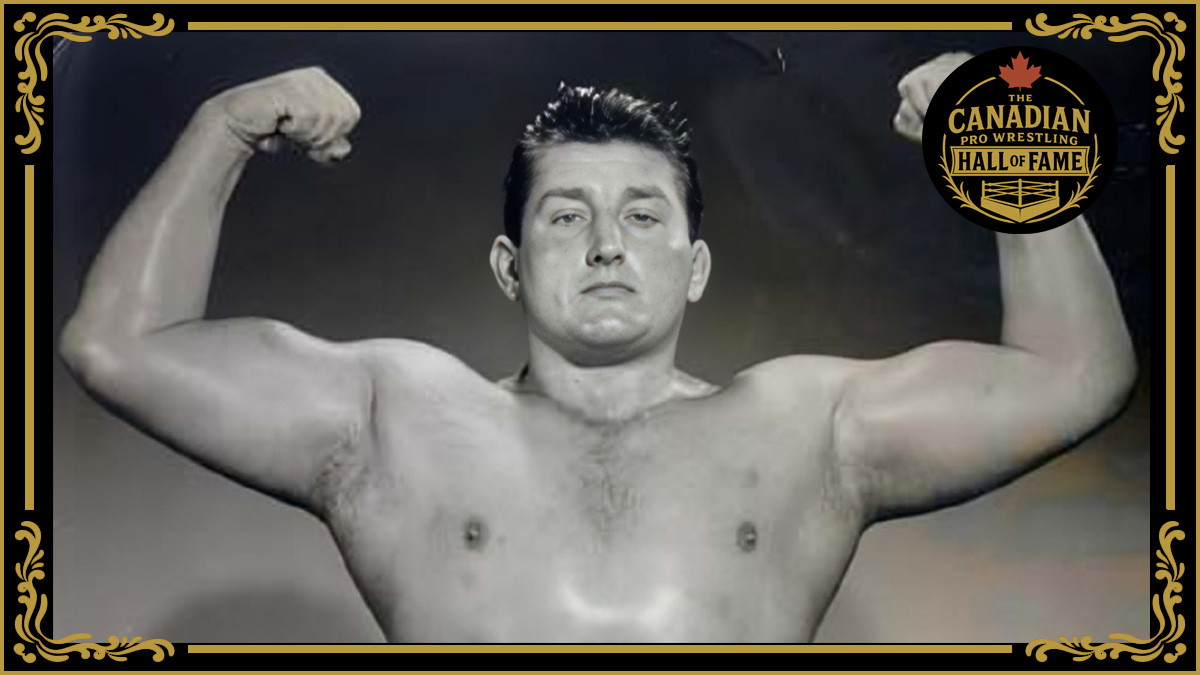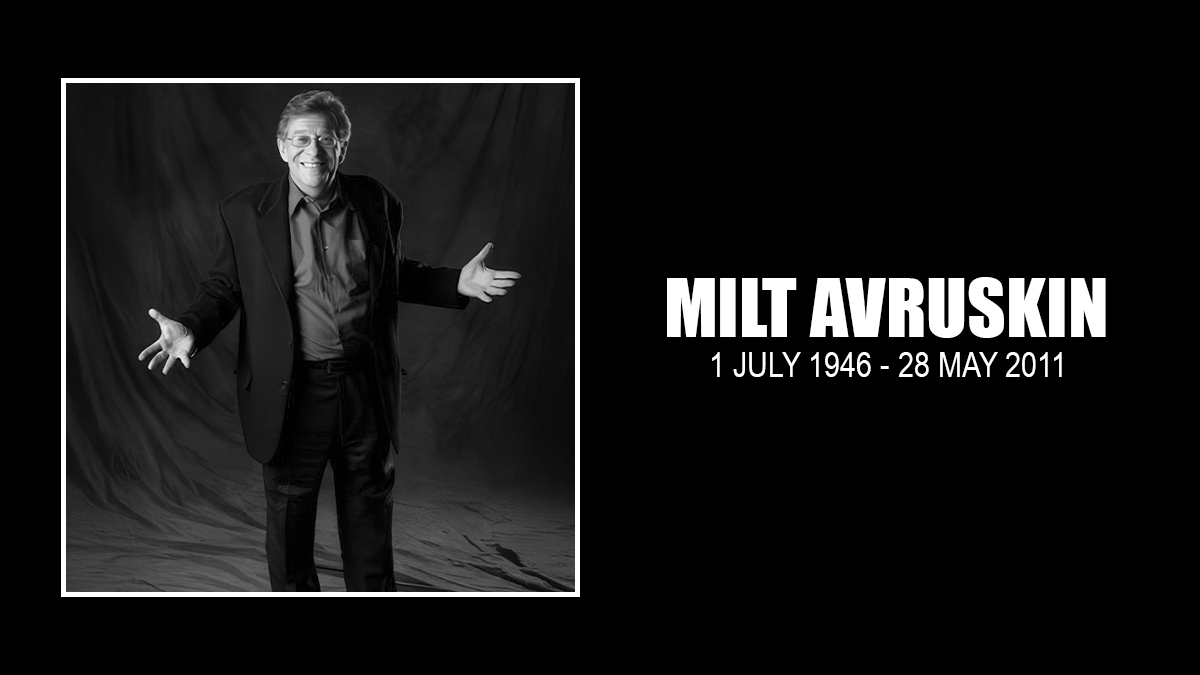I have never dreaded writing an obituary more than this one. Terry Dart, the epitome of an old-school superfan, and my oldest friend from the world of pro wrestling, has died. He was 75.
He was a columnist in my newsletter, a subject in my favourite wrestling book, the person I dedicated my second book to, and someone I visited every time I could when I was in London, Ontario, where much of my extended family lived.
His son, Scott Dart, posted the sad news on May 26: “It is with a heavy heart that I let people know my Dad, Terry Dart has passed away early this morning after a long battle with cancer. My dad’s heart was always in the right place and he cared about others. He will be missed by his family and many people wrestling fans around the world.”
The last time I visited, my son along for the trip, I couldn’t believe that he was still living on his own. Terry has had health issues the entire time I’ve known him, but this was different. Upon my return home to Toronto, I was relieved to learn that Scott Dart had the wheels in motion to put his dad into assisted care living.
As a wrestling collective we made plans to go help Terry with his wrestling memorabilia.
Then COVID-19 shut it all down, and we never got to visit again. What a terrible time for someone to move into an assisted care facility.
While Terry didn’t die of the virus, there’s little doubt that under more “normal” circumstances, there might have been more and better care available to him.
* * *I can’t think of Terry without a strange mix of joy that he was a part of my life, and sadness, knowing the trials and tribulations that he went through during his life.
He was born August 10, 1944, in London, Ontario. He went to Clarke Road Public School and soon found work at McCormicks Biscuits and Candy after finishing high school, and later was a custodian at the Middlesex County School Board.
Terry met his wife, Pat, in 1966. They had three children, Scott, Tracy and Eric. When he was only one and a half, Eric died, after suffering from many health problems. Pat died in 1994 from cancer when she was 46.
Many health problems described Terry Dart too. He had a fall at work, and ended up on Workers’ Compensation for the rest of his life.
Therefore, the Terry Dart I met in 1987 at a wrestling show at the Western Fair was always one to lament about his health, from his shaky hands to his back pain to, much later, prostate cancer. He had probably 40 surgeries during his life, including one where his brain was opened and he had to stay awake so doctors could test his reflexes.
Then in July 2014, out of nowhere, his grandson, Khoi Pham, died. He was a healthy athlete, a guard on the St. Clair College basketball team.
Terry and his daughter, Tracy, had had a trying relationship. He often vented to me about slights that were real or blown out of proportion; I never met or dealt with Tracy, so can’t offer comment. But after her son, Khoi, died, Terry said she changed and didn’t have anything to do with him. Fortunately, he still got to see the other grandkids on occasion, and they’d help around the house.
When Terry called me, I’d listen. He needed to talk about things.
But more than anything, Terry needed to talk about wrestling.
* * *Back when Terry could type easier, his shaky hands only one issue, as sitting still wasn’t simple either, he signed his emails “A wrestling fan since 1957.”
I have never met a more dedicated, knowledgeable, passionate wrestling fan than him. He’d have the WWE Network on all the time, and would complain about today’s wrestling … but he still had it on. The shorter shows from NXT and NXT UK were more his speed, more reminiscent of the old days. “The good old days ended in the early 1980s with Vince McMahon taking over, then all we saw is that useless Hulk Hogan and Iron Sheik. I will not watch it at all,” he vowed at one point.
But he did.
* * *Not only did Terry subscribe to my Canadian Wrestling Report newsletter, he became a columnist, debuting in January 1989. His “Jarful of Memories” column, with its recollections and clippings and old photos, was a hit, and I probably had more people mention that than anything else in the newsletter.
But there was more than that.
I was a teenager, and he was an adult with grown kids, and he became a pal, a confidant, a cheerleader, a traveling buddy. In a time before widespread pay-per-view access and satellite dishes, he had access and taped PPVs and specials from WTBS for me, which I then copied and sold VHS tapes to my subscribers who were in the same boat, without access.
Since he lived in London, and didn’t work, he was a respite from visiting family. I’d just hang out at his place, or go out for lunch nearby at a diner he liked, sometimes with my wife or son along too. He was a good host, always insisting on a snack or a drink. When my son Quinn came along in 2006, Terry adopted him as one of his own grandkids — he had five grandkids, including Khoi — sending him money at Christmas.
Terry’s son, Scott, bought the London Majors Intercounty League baseball team, so Terry helped out at concessions until his health no longer permitted. On one trip, I met Terry at the empty ballpark, and we talked as we moved things into position for the game hours later. Naturally, he reminisced about some of the wrestling events that had been held at Labatt Park years and years ago.
On one of my trips to London, I went to go visit Jim Freedman, who wrote the book Drawing Heat, which came out in 1988, and details wrestling in Southern Ontario, from the Tunneys in Toronto to The Sheik’s fading antics, to Dave “Bearman” McKigney. Terry Dart was a character in Freedman’s book. After all, he’d wrestled McKigney’s bears about eight times, and he had a big scar on his ankle to prove that it was dangerous. “I also miss wrestling Dave McKigney’s bears Terrible Ted and his last one Smokey. I remember I had a head lock on Smokey and the bear lost his balance falling on my ankle requiring me to have surgery,” he noted to me once.
* * *How much did wrestling permeate the life of Terry Dart?
Here’s an example: “The first ladder match was in 1965 at work on my lunch break. We used to have noon time wrestling for a cheap little trophy. Well it was my turn to wrestle the foreman and I wanted to kneedrop him, so I got a large step ladder and climbed to the top of it and kneedropped the foreman. The only problem was as I was coming down, the foreman raised up his head and I kneedropped his nose. There was blood all over the floor from his nose, so I won the department championship.”
Terry traveled by train to Toronto for matches at Maple Leaf Gardens, and two hours the other way to Detroit for battles at Cobo Hall.
He had a story from every trip and an amazing memory.
Thankfully, Terry took a camera along on so many of the journeys, resulting in an incredible treasure trove for historians and writers. Similarly, he had oodles of magazines, programs, books. On my last trip in late 2019, I brought home an album of photos I’d never seen before … remember, I’d known Terry since 1987!
“I miss being allowed up by the ring to take pictures as there was no barrier around the ring, so I could put my camera under the bottom rope and get good photos. They would also allow fans to get autographs up at the ring before the bout,” Dart said. “I will never forget all the fans around the ring banging the mat when Whipper Watson had the sleeper on a villain. We were always allowed back by the dressing rooms to meet friends and talk about the upcoming night’s matches, also the wrestlers always posed back in the hallway outside the dressing room for photos here in my hometown of London, Ontario. If we asked a wrestler for a publicity photo, they gave you one if they had any. I got one from Sam Steamboat, Tom ‘The Emperor’ Jones and Ivan Kalmikoff.
“I used to wait for wrestlers to arrive and ask if I could carry their suitcases for them and always got in for free this way. I’ll never forget how many a time Gino Marella a.k.a. Gorilla Monsoon would ask me to hold his huge coat and glasses when he went to ringside to break up a fight. That sure made me proud as a young teenager. I’ll tell you Gino Marella was one of the most decent people I ever met.”
Countless wrestlers posed for him backstage in London, and his kids, Tracy and Scott, are in many shots. There was a greater family at the matches too, regulars like the two elderly ladies, Ma Pickles and Mrs. Nelson, and others in the front row: Gary Bodkins, Harry Larsen, Ted Anderson and Bill McLaren.
His stories were from the ring, and behind the scenes.
Here’s a good one: “I was at the Olympia one night and cases of beer started coming in the side door. Bruiser and Crusher were standing behind me. We were out in the hallway from the locker rooms. I said to a friend, ‘Geez, I’d like to see that Bruiser. He’s probably not that tough.’ The guy elbowed me, I looked behind me and had Bruiser breathing down my neck. ‘Yeah, I just asked my friend what time it is, Dick.’ He says, ‘You look a geek.’ You could smell his breath. All the time you could smell his or Crusher’s breath, you could have sworn there was a whole Brewer’s Retail with all the beer. Man, they were tough. They lived the part, smoked their cigars.”
Is there a better example of how times have changed than Terry lamenting the smoke-filled arenas? “I’ll never forget when they had to open all the exit doors during the main even to let all the smoke out of the building, because as the night went on the ring got harder to see due to all the smoke.”
* * *There isn’t an indy from Windsor to Woodstock that didn’t see Terry at its shows from the 1980s until he was unable to drive very far to shows. They all knew him. He was part of the fabric of pro wrestling shows. Often, he had his friend Rory along, who would charitably be described as hygiene-challenged; they made an odd pair.
At one point, he got to live out a dream as a manager. Terry wore a Destroyer mask, a fedora, and a suit, carrying a suitcase, and portrayed Will E. Beatum. He’d often talk about it. There were a few bouts too, mainly battle royals, where he could be protected. Note that all this came years after his accident, and following countless surgeries.
Pro wrestling had healing properties to Terry, and I don’t think it’s an exaggeration to say that it helped keep him alive. It’s also not an exaggeration to say that I don’t succeed without Terry, from my newsletter and university, to SLAM! Wrestling and my many books.
* * *
In 2013, NXW presented him with an award to recognize his dedication. That the award came from the notorious Doug Felton, he of renegade shows and missed payments, made it all appropriate. Terry could never really explain why he and Doug stayed friends when so many others moved away from the shyster. You could almost hear him shrugging over the phone. It was wrestling, after all.
* * *Terry was there for all of my early wrestling life, and I brought him along as my adulthood journey into the wacky world of pro wrestling grew. He was there for the launch of my first book, The Pro Wrestling Hall of Fame: The Canadians, and at one signing, we had lunch with Billy Red Lyons. The Pro Wrestling Hall of Fame: The Tag Teams, which I wrote with Steve Johnson, is dedicated to Terry. He came to my Titans in Toronto dinners, when health permitted, and he had a fabulous time in the summer of 2018 when a friend picked him up and brought him to Bernie Livingston’s home in Mississauga, to reminisce with other local wrestlers.
As much as I often wanted to hang up the phone, as Terry told a story I’d heard a dozen times before, I’d do anything to get a call from him again.
But the final bell has rung for my friend.
Fair warning to the legends already in Heaven — Terry Dart is coming to talk to you again, Whip; Don Leo, settle in for a long chat; Gene Kiniski, he knows more about your career than you do. And Sheik? He wants payback for that camera you broke!
Best of Terry Dart – B&W from London, Ontario




